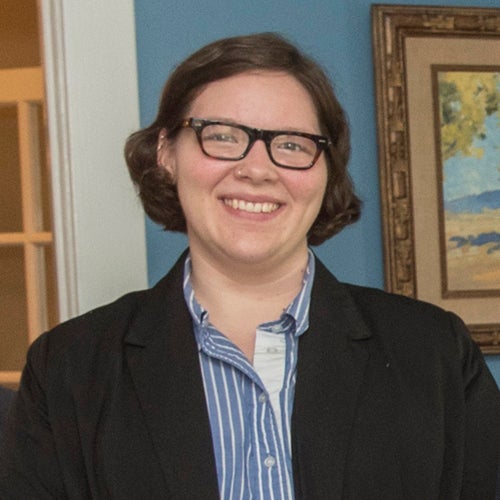Political Science Major, Arabic Minor, and Boren Scholar
 Zoë Mitchell, Class of 2018, is currently studying in Morocco through the prestigious Boren Scholarship. The Political Science Major and Arabic Minor, who aspires to a career in international relations, is spending her time abroad immersed in Middle Eastern politics and Islamic studies. A&S Staff Writer Aria Mia Loberti conducted an interview with her in May 2018.
Zoë Mitchell, Class of 2018, is currently studying in Morocco through the prestigious Boren Scholarship. The Political Science Major and Arabic Minor, who aspires to a career in international relations, is spending her time abroad immersed in Middle Eastern politics and Islamic studies. A&S Staff Writer Aria Mia Loberti conducted an interview with her in May 2018.
Please share a little about the Boren Scholarship and your application process. What triggered you to apply to the scholarship? Why did you select Morocco as your destination?
The Boren Scholarship is administered by the National Security Education Program and it’s goal is to provide funding for those who want to study national security languages, like Arabic, Russian, Mandarin etc. abroad. There is also a service component of the Boren. Students who receive the scholarship are obligated to do at least a year of service in the Federal government.
I decided to apply for the Boren because I knew I wanted to study Arabic abroad and would not be able to do so without financial assistance. The Boren was one of many scholarships that I applied to, I never actually thought I would be chosen. Then when I was, it was a complete surprise and I was immensely grateful. The application process itself is pretty daunting. I had to write two essays, but did not have that many words to introduce myself, explain my national security argument, and why I should be chosen. I had to get good at being concise. I chose Morocco because it is not one of the main countries many students go to study Arabic in. A lot of the people I know end up going to Jordan. I was also interested in studying Darija, the Moroccan dialect of Arabic. It is a dialect not many people spend time studying because it is only spoken in Morocco, but if you want to speak with as many people here as possible it is really important to know.
How long have you been studying Arabic? How does it complement your Political Science studies?
I’ve actually only been studying Arabic while here in Morocco. My program allows you to go from beginning Arabic I to Intermediate II in a year, which was one of the reasons I chose it. Arabic has been extremely complementary to my political science studies. Many of the courses I have taken at URI have focused on Middle Eastern politics and Islamic studies. Learning the language of the region and the religion has provided me with more incite into both.
Describe your experience in Morocco so far. For how long will you be abroad? What are some of the highlights or surprises?
I head home at the end of April; at which time I would have lived here for eight months. My experience here has been amazing. Moroccans are some of the most welcoming people I have ever met, and getting to see the culture here with locals has been incredible. Some of my biggest highlights here have just been talking to people in Arabic or Darija and getting to see Morocco the way they do. One surprising thing has been how different each Moroccan city is, yet there is always this overarching identity of being Moroccan and Muslim (even more so). It amazes me that each new place I visit in Morocco has its own feeling and vibe, but at the same time is distinctively Moroccan.
What gets you excited (academically or otherwise!)?
I get excited by lots of things. I do this thing where I find something interesting, academically or otherwise, and I try to find out as much about it as possible. I kind of go down this rabbit hole of discovery. I also really enjoy making connections between different subjects. For example, the intersection of global politics, culture, and art is something that I am really interested in and find exciting.
What are your post-graduation and/or career goals?
I am planning to go to graduate school the fall after graduation to work towards a masters in the realm of international relations and global politics. My goal is to work in the Federal government or an NGO as a policy analyst.
How has URI helped you in realizing and/or achieving these goals?
URI has given me an excellent foundation of knowledge and skills that will aid me in taking the next steps to graduate school and beyond. What I have learned in my classes in the Political Science department, and the connections I have made through opportunities there as well, have really helped launch me forward into the next steps of my educational and career trajectory.
What advice do you have for other URI students, particularly those in the liberal arts?
Specifically to those who are studying liberal arts and humanities, do not feel like you’re wasting your time or that you’re degree is a “joke”. You’re not, and it’s not. Having young professionals who understand these subjects is crucial for the betterment of our society, especially in the current political context in the U.S.

